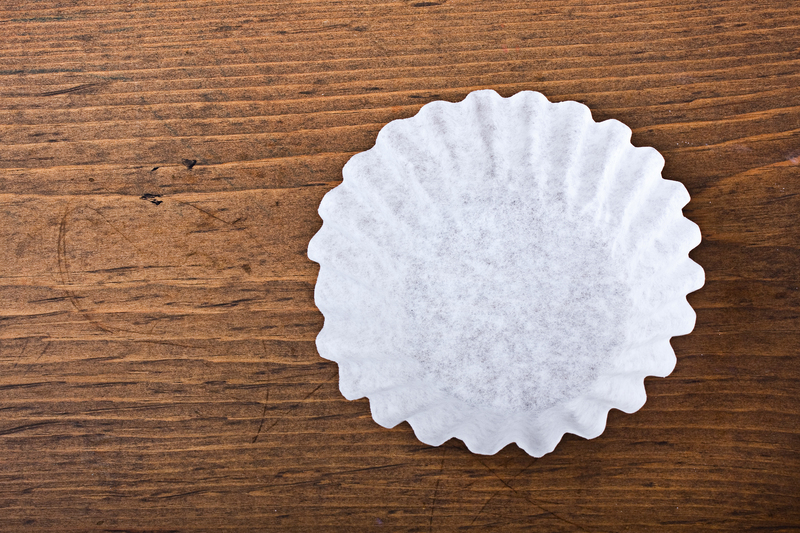Optimize Home Comfort by Eliminating Pet Odors
Posted on 15/06/2025
Optimize Home Comfort by Eliminating Pet Odors
Love your furry companions but tired of lingering smells? Discover effective and innovative strategies to optimize home comfort by eliminating pet odors once and for all. This comprehensive guide explores expert tips, trusted cleaning methods, and prevention strategies for a fresher, more inviting living space.
Understanding the Causes of Pet Odors
Pets bring endless joy, but they can also introduce stubborn odors into your home. Before tackling the problem, it's wise to identify the main sources:
- Urine - The most notorious culprit, especially from cats and dogs. Urine can seep deep into carpets, floors, and even walls.
- Dander and Fur - Pets continuously shed fur and microscopic skin flakes, which can create mustiness over time.
- Dirty Litter Boxes or Cages - Frequent buildup leads to potent, persistent smells.
- Saliva and Sweat - Dogs, in particular, may drool or sweat through their paws, spreading additional odor.
- Vomiting and Accidents - Occasional mishaps can leave behind spots that breed bacteria and foul smells.
Recognizing the type and source of odor is the first step in keeping your home smelling fresh and welcoming to both guests and family members.

Immediate Steps for Pet Odor Elimination
1. Act Swiftly on Accidents
Whether your pet is still house training or simply had an off day, the key to eliminating pet odors is addressing accidents immediately. Use absorbent towels to blot up liquids and prevent deeper permeation of floors or upholstery. Never rub! This can spread the mess and push it further into fabrics.
2. Use an Effective Enzymatic Cleaner
Enzymatic cleaners break down the proteins and bacteria that cause bad smells. They are particularly effective on pet urine and organic spills. A high-quality enzymatic product will neutralize odors on a molecular level--often where traditional cleaners fail.
- Thoroughly soak the affected area per product instructions.
- Allow it to air-dry to enable the enzymes to work fully.
- Repeat if necessary for persistent scents.
3. Clean Litter Boxes and Cages Regularly
Cats and small animals require clean litter boxes and cages to minimize home odors. Daily removal of waste, weekly deep cleaning, and periodic box replacements significantly cut down on unwanted smells. Use baking soda or specialized odor-control litter for additional freshness.
Deep Cleaning for Long-Term Odor Removal
Getting beneath the surface is critical to permanently remove pet odors from your home. Here's how:
Carpet and Upholstery Cleaning
- Vacuum all surfaces often, using a machine with HEPA filters to capture allergens and pet hair.
- Rent or purchase a steam cleaner for deep cleaning carpets, rugs and larger furnishings. Steam helps kill bacteria and lift stains.
- Focus on high-traffic and accident-prone spots to ensure odors don't become embedded.
If you cannot eliminate the odor, consider professional cleaning services. They have strong equipment and tested methods for removing deeply-set pet smells.
Washing Bedding, Curtains, and More
Don't forget to wash all pet bedding and removable fabrics regularly. Hot water and a cup of white vinegar added to your laundry will help deodorize most materials.
- Wash curtains and cushion covers quarterly or as needed.
- Avoid fabric softeners--they can trap odors.
- Sprinkle baking soda on fabrics and let it sit for 15 minutes before vacuuming for extra freshness.
Addressing Hard Flooring
- Mop with pet-safe cleaners, ensuring no residue is left behind.
- For stubborn smells in floorboards, scrub with a mix of water and apple cider vinegar.
- Seal gaps or cracks where urine might have seeped to eliminate deep, lingering smells.
Odor Prevention Tips for a Fresher Home
Stopping odors before they start is the best strategy to optimize home comfort:
- Bathe pets regularly using appropriate shampoos.
- Brush coats and sweep floors to control shedding and dander.
- Keep paws clean, especially after walks or yard time.
- Install air purifiers with HEPA and carbon filters to reduce odor-causing particles.
- Open windows when weather permits to enhance ventilation and disperse smells.
Natural Deodorizers and Home Remedies
1. Baking Soda
Baking soda is a natural odor neutralizer. Sprinkle it generously on carpets and pet bedding, let sit, and then vacuum thoroughly.
2. White Vinegar
Mix equal parts white vinegar and water in a spray bottle for a cost-effective, non-toxic cleaning solution. It cuts through grime and helps eliminate pet smells on hard floors and countertops.
3. Activated Charcoal
Place bowls of activated charcoal around odor-prone areas. This powerful absorber will trap bad smells and freshen the air quietly and efficiently.
4. Essential Oils (Use with Caution!)
Certain essential oils like lavender or eucalyptus may help mask pet odors naturally. However, always research which oils are safe for pets--some can be toxic to cats and dogs.
Choosing the Right Pet-Safe Cleaning Products
Not all cleaning products are created equal--ensure your solution is effective and safe for pets. Consider these product types:
- Enzyme-based cleaners: Best for organic stains and strong urine odors.
- Pet-safe floor and surface sprays that avoid harsh chemicals and artificial fragrances.
- Litter additives and deodorizing sprays formulated specifically for animal areas.
Check product labels for certifications like "non-toxic," "biodegradable," and "pet-friendly" to ensure maximum safety and efficacy.
Innovative Solutions for Lasting Pet Odor Control
Air Purifiers & Home Ventilation
Invest in a modern air purifier with HEPA and activated carbon filtration to remove pet dander, hair, and gasses that lead to unpleasant smells. Regularly clean and replace filters per manufacturer instructions for best performance.
- Choose a unit appropriate for your room size.
- Run purifiers 24/7 in main pet areas for continuous freshness.
- Combine with frequent airing out and mechanical ventilation systems for optimal results.
Odor-Resistant Materials and Furnishings
Consider updating your home with pet-friendly materials:
- Synthetic rugs that resist stains and odors.
- Leather or faux-leather upholstery, which is easier to wipe clean than fabric options.
- Hard-surface flooring like tile, laminate, or sealed concrete in pet zones.
These smart upgrades are easier to maintain and more resistant to everyday pet mishaps.
Pet Training for Lasting Home Comfort
1. Housebreaking and Litter Training
Consistent training is critical for minimizing indoor accidents. Stick to a regular schedule for bathroom breaks. Heavily praise and reward successful eliminations outside or in the right spot. Patience pays off--well-trained pets contribute to a fresher home and less stress for everyone.
2. Designating Pet Areas
Establish specific zones for pets in your home. Place beds, litter boxes, or cages in easy-to-clean locations away from living and dining areas. This not only contains potential odor but also simplifies cleaning routines.
3. Regular Grooming and Care
Dirty coats and paws bring outside smells and bacteria into your house. Regularly groom, bathe, and brush your pets, especially high-shedding breeds, to control dander and keep them healthy.
When to Seek Professional Help
Despite your best efforts, sometimes removing persistent pet odors is just too much to tackle alone. If smells linger after deep cleaning:
- Consult an odor remediation specialist or professional cleaning service.
- Veterinarians can provide advice if your pet's hygiene or health are at the root of ongoing issues.
- Explore replacing heavily contaminated furnishings or flooring if nothing else has worked.

Frequently Asked Questions (FAQ) About Eliminating Pet Odors
Q: How do I keep my house smelling fresh with multiple pets?
A: Frequent cleaning is key: vacuum daily, wash pet bedding, and empty litter boxes or cages often. Use air purifiers and allow fresh air in whenever possible. Consider limiting furry friends to certain rooms to manage cleaning more easily.
Q: Are there any home remedies that work for all pet odors?
A: Baking soda and white vinegar are safe, natural deodorizers effective for most fabrics and hard surfaces. However, for set-in urine odors, enzymatic cleaners are strongly recommended.
Q: Are plugin air fresheners safe for homes with pets?
A: Many plugin air fresheners contain chemicals that may be harmful to pets. Opt for natural solutions--like baking soda, activated charcoal, or essential oils (with caution)--and prioritize ventilation and filtration instead of masking odors.
Q: Can pet odors affect indoor air quality or health?
A: Yes. Accumulated pet dander, urine, and waste can contribute to indoor air pollution, worsen allergies and asthma, or harbor bacteria and mold. Eliminating pet odors means you are also enhancing health and overall home comfort.
Conclusion: Create a Home That Smells as Good as It Looks
Your pets are beloved members of your family--but persistent pet odors don't have to be. Through regular cleaning, proactive prevention, and smart home upgrades, you can optimize home comfort by eliminating pet odors and create a space where everyone--two-legged and four-legged--feels welcome. With these strategies, it's easy to enjoy a fresher, healthier, and more beautiful home every day!
```



